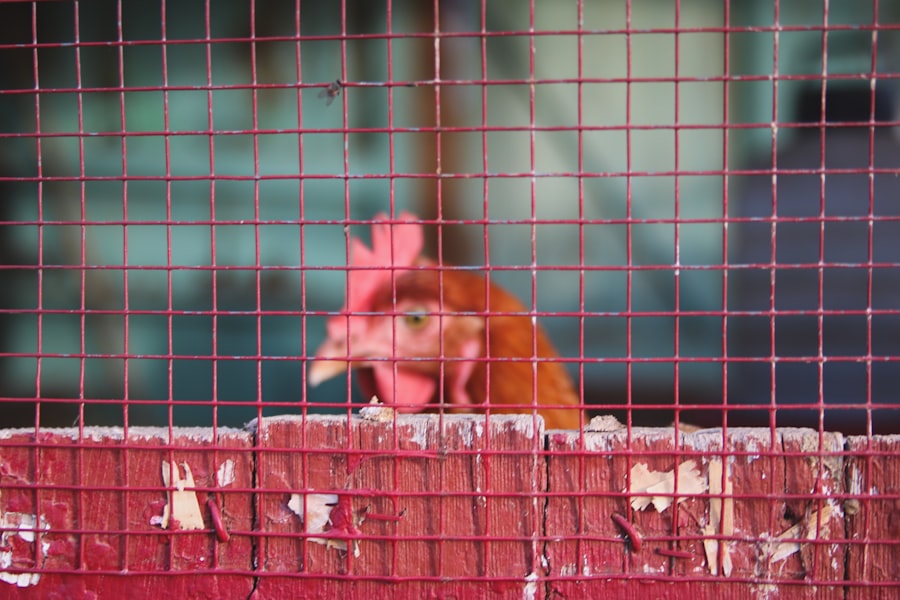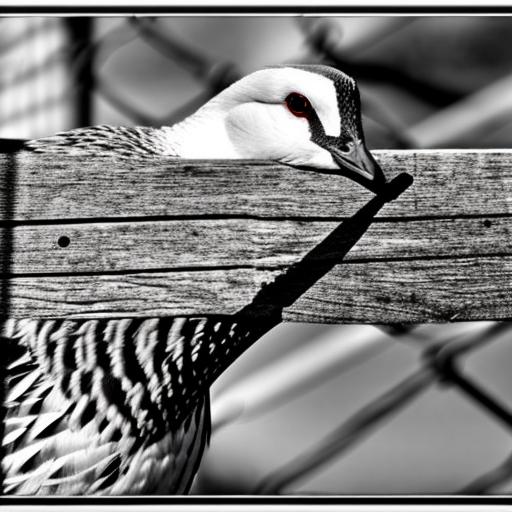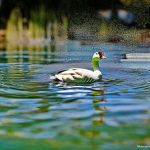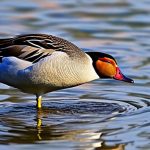Geese intrusion can be a major nuisance for property owners. These large birds are known for their aggressive behavior and can cause damage to lawns, gardens, and other outdoor areas. They are attracted to certain areas due to the availability of food and water sources, as well as the presence of open spaces for nesting and raising their young. In order to protect their property from geese intrusion, many property owners turn to fences as a solution. Fences can be an effective way to keep geese out, but it is important to understand the behavior of geese and the factors to consider when installing a fence.
Key Takeaways
- Geese intrusion can be a problem for property owners
- Understanding geese behavior is important in finding effective solutions
- Fences can be effective in keeping geese out
- Different types of fences are suitable for keeping geese out
- Factors such as height and material should be considered when installing a fence to keep geese out
Understanding the behavior of geese
Geese are social birds that are known for their strong family bonds. They are attracted to areas that provide them with ample food and water sources, as well as open spaces for nesting and raising their young. Geese are herbivores and feed on grasses, grains, and aquatic plants. They are often found near bodies of water such as ponds, lakes, and rivers, where they can easily access food sources. Geese also prefer open spaces where they can graze and keep an eye out for potential predators.
The effectiveness of fences in keeping geese out
Fences can be an effective solution for keeping geese out of a property. A well-installed fence can create a physical barrier that prevents geese from accessing the property. Fences can also act as a visual deterrent, making geese less likely to attempt to enter the area. Additionally, fences can help protect lawns and gardens from damage caused by geese grazing or nesting.
Types of fences suitable for keeping geese out
There are several types of fences that are suitable for keeping geese out. One popular option is a chain link fence, which provides a sturdy barrier that is difficult for geese to penetrate. Another option is an electric fence, which delivers a mild electric shock to deter geese from attempting to cross the barrier. Electric fences are particularly effective for larger properties or areas with high geese populations. Other options include plastic mesh fences or netting, which can be installed around specific areas such as gardens or ponds.
Factors to consider when installing a fence to keep geese out
When installing a fence to keep geese out, there are several factors to consider. The height of the fence is important, as geese are capable of flying and may attempt to fly over a low fence. A fence that is at least 3-4 feet high is recommended to prevent geese from easily crossing over. The material of the fence is also important, as geese are strong birds and may attempt to push or break through a weak fence. Chain link fences or electric fences are often the most effective options.
Alternatives to fences for keeping geese out

While fences can be an effective solution for keeping geese out, there are also alternative methods that can be used. One option is to use decoys, such as fake predators or other animals, to deter geese from entering the area. Geese are wary of potential predators and may avoid areas where they see these decoys. Another option is to plant certain types of vegetation that geese find unappealing. For example, planting tall grasses or shrubs can create an obstacle that makes it difficult for geese to access the property.
Maintaining fences to ensure they keep geese out
Once a fence has been installed, it is important to properly maintain it in order to ensure it continues to keep geese out. Regular inspections should be conducted to check for any damage or weak spots in the fence. Any repairs should be made promptly to prevent geese from finding a way through. Additionally, vegetation should be kept trimmed around the fence to prevent geese from using it as a perch to jump over.
The role of scare tactics in conjunction with fences
In addition to fences, scare tactics can be used in conjunction to further deter geese from entering the property. Scare tactics can include noise makers, such as air horns or whistles, as well as visual deterrents, such as reflective tape or scarecrows. These tactics can help reinforce the message that the area is not safe for geese and make them less likely to attempt to enter.
The importance of professional installation of geese-proof fences
When installing a fence to keep geese out, it is important to have a professional handle the installation. A professional will have the knowledge and experience to properly install the fence and ensure it is effective in keeping geese out. They will also be able to recommend the best type of fence for the specific property and provide guidance on maintenance and upkeep.
The benefits of a geese-free property with a well-installed fence
Having a geese-free property with a well-installed fence can provide numerous benefits for property owners. It can help protect lawns and gardens from damage caused by geese grazing or nesting. It can also create a more enjoyable outdoor space for residents and visitors, free from the noise, mess, and aggression associated with geese intrusion. By understanding the behavior of geese and taking the necessary steps to keep them out, property owners can create a peaceful and beautiful environment that is free from the nuisance of geese intrusion.
If you’re looking for ways to keep geese out of your property, you may be interested in an article on Poultry Wizard titled “Will a Fence Keep Geese Out?” This informative piece explores the effectiveness of using fences as a deterrent for geese and provides valuable insights on the topic. To learn more about this subject, check out the article here.
FAQs
What is the purpose of a fence?
A fence is a barrier that is used to enclose an area or to keep something in or out.
Can a fence keep geese out?
Yes, a fence can keep geese out if it is tall enough and properly installed. Geese are not able to fly over high fences or squeeze through small gaps.
What type of fence is best for keeping geese out?
A fence that is at least 4-6 feet tall and made of a solid material such as wood or vinyl is best for keeping geese out. Chain-link fences are not effective as geese can easily see through them and fly over.
Do geese always try to get into fenced areas?
Geese are attracted to areas with water and food sources, so if these are present within a fenced area, geese may still try to get in. Additionally, if the fence is not properly installed or has gaps, geese may be able to get through.
Are there any other methods for keeping geese out besides a fence?
Yes, other methods for keeping geese out include using decoys, applying repellents, and modifying the landscape to make it less attractive to geese. However, these methods may not be as effective as a properly installed fence.
Meet Walter, the feathered-friend fanatic of Florida! Nestled in the sunshine state, Walter struts through life with his feathered companions, clucking his way to happiness. With a coop that’s fancier than a five-star hotel, he’s the Don Juan of the chicken world. When he’s not teaching his hens to do the cha-cha, you’ll find him in a heated debate with his prized rooster, Sir Clucks-a-Lot. Walter’s poultry passion is no yolk; he’s the sunny-side-up guy you never knew you needed in your flock of friends!







